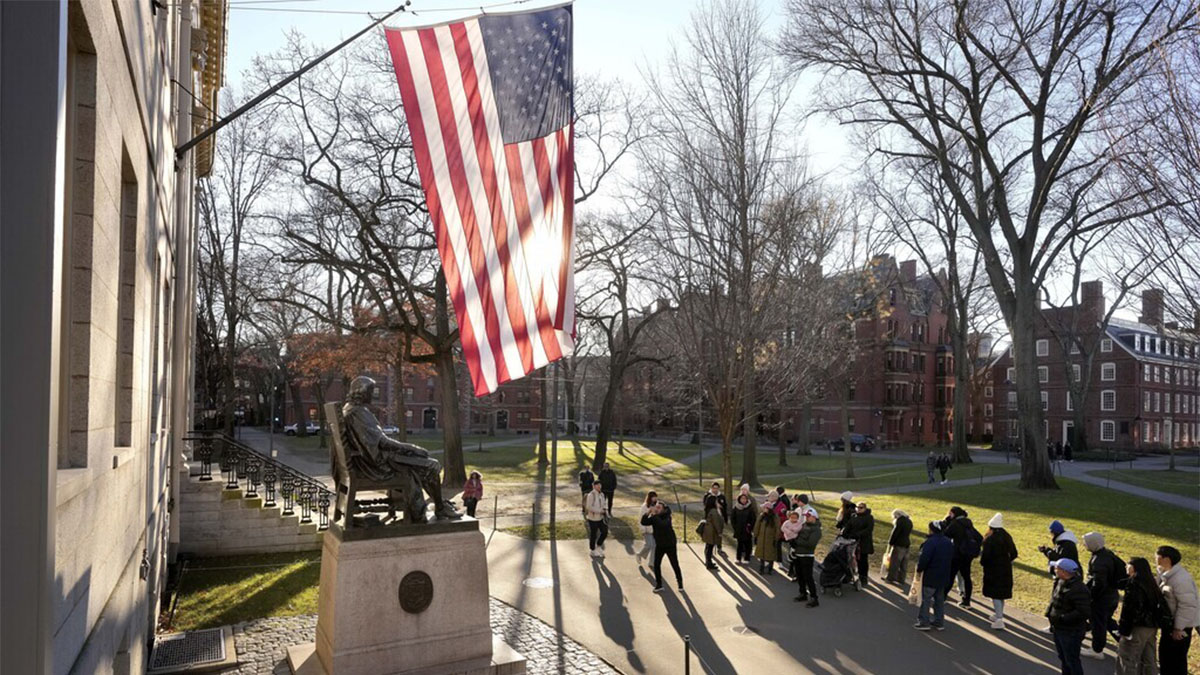In 1969, during the anti-Vietnam War upheaval, the Nixon administration covertly attempted to influence university governance by leveraging federal grants and Department of Defence contracts. When the University of Wisconsin–Madison refused to fire faculty involved in protests, senior officials considered punitive budgetary cuts. Though ultimately abandoned, the episode revealed a recurring motif in American political history: when political institutions feel threatened by epistemic communities, they respond by targeting resource flows. In essence, this is a classic manifestation of principal-agent tensions, where the state (principal) seeks to assert control over real danger is not ideological bias in the classroom but the strategic decay of institutions unresolved tension is again in sharp relief today.
A major confrontation has emerged in the American higher education, pitting the executive branch against elite universities. This clash centres on what the administration perceives as systemic ideological bias within these institutions and their failure to uphold viewpoint neutrality and non-discrimination. Harvard University has become the immediate locus of this struggle, as the administration issued a series of demands, including auditing hiring practices, modifying curricula, eliminating DEI programmes, and mandating external oversight to enforce “viewpoint diversity.” Harvard, invoking constitutional protections and institutional autonomy, has refused to comply, framing these demands as infringements on academic freedom and unlawful intrusion into internal governance.
The administration responded by initiating a freeze on federal grants and threatening the revocation of Harvard’s tax-exempt status, arguing that failure to uphold “public interest” obligations renders such fiscal privileges unjustifiable. This form of leverage mirrors regulatory reprisal mechanisms, where financial controls serve as indirect means of policy enforcement in lieu of formal legal coercion. While legal scholars may debate the constitutional validity of such moves, the political intent is unambiguous: to reassert state influence over what is seen as an ideologically deviant epistemic elite.
This escalation must be situated within broader theoretical frameworks. Neo-institutionalist theory suggests that institutions, particularly those like universities, seek legitimacy through isomorphic adaptation to external pressures. However, when such pressures originate from overt political mandates rather than sectoral norms or peer benchmarking, they risk delegitimising the institution’s knowledge-producing role. In this case, enforced viewpoint diversity could paradoxically reduce epistemic pluralism by institutionalising ideological quotas, thus violating the university’s foundational logic of scholarly autonomy and peer evaluation.
Impact Shorts
More ShortsThe potential long-term ramifications for the American higher education system are profound. First, there is a risk of perverse institutional incentives: universities may begin pre-emptively aligning with perceived ideological preferences of the ruling executive to secure funding, thereby undermining academic neutrality. This echoes public choice theory predictions (Buchanan and Tullock, 1962), where rent-seeking behaviour replaces meritocratic allocation in pursuit of political favour.
Second, hiring and research agendas may be reshaped not by scholarly merit but by compliance metrics, leading to a technocratic form of regulatory capture. Faculty might internalise these constraints and engage in self-censorship, producing a chilling effect on critical inquiry, akin to what Hirschman (1970) termed “exit, voice, and loyalty” dynamics, where dissenters exit or conform, and institutional voice is diminished.
This politicisation also risks hollowing out the U.S.’s global academic advantage. For decades, American universities have wielded disproportionate global influence not merely through rankings or research output but via their soft power. The perception that American universities are autonomous, ideologically open, and intellectually meritocratic has attracted global talent and enabled the U.S. to shape discursive norms in science, law, economics, and the humanities. That trust equilibrium is now at risk. If international students and faculty perceive universities as extensions of partisan politics, the reputational damage could reduce enrolments, philanthropic funding, and collaborative research ventures.
Meanwhile, China may stand to benefit from this internal American crisis. While Chinese universities operate under state oversight, they have, in recent years, pursued aggressive strategies to internationalise through programs like the Double First-Class University Plan and the Thousand Talents Program. With billions in R&D and infrastructure investments and increased academic partnerships across Asia, Africa, and Europe, China strategically positions its institutions to absorb the disillusioned global academic diaspora. Ironically, the same critique often levelled at Chinese universities, state control over academic freedom, could now be redirected toward their American counterparts. The principal-agent theory flips, and the state becomes a more reliable funder abroad than at home.
Moreover, China’s approach, rooted in state-capitalist institutional design, permits a level of strategic long-termism that democratic states often struggle to maintain. If the U.S. continues down this path of higher education politicisation, China could attract Western-trained scientists and social scientists, especially in sensitive fields like AI, climate science, and geopolitics—thus strengthening its epistemic sovereignty.
In a world increasingly shaped by technological supremacy, narrative control, and information ecosystems, the country that controls the most credible knowledge institutions sets the terms of global legitimacy. Undermining its own universities weakens America’s ability to generate consensus on truth itself, whether on science, law, or ethics. It cedes that authority to rival systems that do not share its democratic ethos.
The real danger is not ideological bias in the classroom but the strategic decay of institutions that once gave the U.S. its edge in shaping what the world believes to be real, rational, and right. This is a war over the command of ideas. And America, unwittingly, is disarming itself.
Aditya Sinha (X:@adityasinha004) is a public policy professional. Views expressed in the above piece are personal and solely those of the author. They do not necessarily reflect Firstpost’s views.


)

)
)
)
)
)
)
)
)



